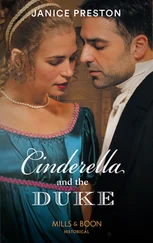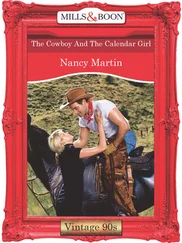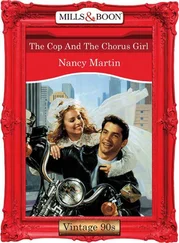Kate’s public-relations campaign and Newland’s cordon of watchers seemed to be paying off. Reporters who showed up at the gates were politely informed that His Grace would answer questions or pose for pictures at his hotel in Plymouth. The few who sneaked in over the walls were escorted from the grounds before they’d gotten halfway through the woods.
Still others tried their luck in Penford Harbor, where they were met not by resentful silence but by an avalanche of monologues. The Tregallis brothers regaled them with fishing stories, Herbert Munting lectured them on chickens, and Jonah Pengully grumbled about everything under the sun—except the one thing the reporters wanted him to grumble about. Like the other villagers, Jonah refused to say a word about the duke.
“It was brilliant,” Derek enthused when he returned from a foray into the village. “Like watching a football match. Every time Grayson’s name came up, Jack tossed the story to James, who booted it to Ted, who slipped right back into some flummery about cod-fishing.” The village team won the match hands down, routing the visitors without giving up a point. The newspaper coverage slowed to a back-page trickle.
Nanny Cole continued to supplement Emma’s wardrobe with dresses in fine-wool, velvet, and hand-printed silk, hand-knitted sweaters in slate blue and dusty rose, two more pairs of trousers, and a third gardening smock. By the end of the ten days, Emma felt as though she’d acquired a private couturière, and Mattie shared her delight, pointing out details of workmanship that Emma never would have noticed. Emma’s sole attempt to express her gratitude in person was met with a gruff “Stop being a ninny and get out of my workroom.” After that, Emma simply made sure that the workroom was graced with fresh flowers every day.
She and Bantry spent long afternoons in the library, making up plant lists and discussing what would go where in the chapel garden. Bantry would use only rough copies of Emma’s sketches, insisting that the duke would want to frame the originals, and he agreed with Emma’s strong intuition that everything planted in the chapel garden should come from the other gardens of Penford Hall. “The dowager duchess would’ve wanted it that way,” he said approvingly. “And we’ve plenty of plants to choose from.”
It was an understatement, as Emma soon learned. The garden rooms in the castle ruins were as varied and as well tended as any Emma had ever seen. The rock garden was a swirling pastel watercolor—sky-blue primroses and white candytuft, purple lobelia and rosy-pink soapwort. The candytuft and primroses, Emma thought, would look wonderful edging the flagstone walk and the reflecting pool.
Clouds of early blossoms graced the rose garden, and Bantry told her all about the ones not yet in bloom. Emma chose a fragrant nineteenth-century Bourbon rose— Madame Isaac Pereire, Bantry informed her—to frame the green door, and a hybrid tea rose to plant beside the wooden bench.
Emma was enchanted by the knot garden. The close-clipped, interlocking chains of low-growing hedges formed a charming double-knot pattern that enclosed a marvelous selection of herbs. There, she discovered the deep purple-blue lavender she would use on either side of the chapel door, along with red sage, bronze fennel, angelica, and golden balm. She found a treasure trove in the perennial border she’d seen the first time she’d entered the castle ruins. Transplanted clematis and delphiniums would soften the stark granite walls, and irises, peonies, lilies, columbines, and a host of other old-fashioned flowers would restore color, form, and texture to the raised beds.
“I’d like a pair of butterfly bushes to tuck into the corners, where the chapel wall meets the garden wall,” Emma explained to Bantry, “and a different climbing rose in the center of each of the long walls. We’ll plant tall perennials to fill the space between the roses and the corner ledges—lupines, hollyhocks, that sort of thing—with shorter ones in front. The bottom tier should have trailing plants spilling out onto the lawn. The rosy-pink soapwort would work, or the verbena. And we’ll need something special to put on the comer ledges.”
“We’ve some nice orchids in the hothouse,” Bantry offered.
“Hothouse?” Emma echoed. She hadn’t noticed one in the house plans Derek had shown her.
“His Grace put it in year afore last,” Bantry explained. “Miss Kate’s partial to orchids.”
They spent the next day in Penford Hall’s conservatory, a two-story glass-enclosed set of rooms tucked away in the west wing. One section was devoted to orchids, ferns, and waving palms, another to miniature fruit trees and topiary, and a third, Emma noted with some amusement, was the source of Nell’s almost constant supply of strawberries. Between the conservatory and the garden rooms, she found everything she’d need.
“Don’t mean to sound sour, Miss Emma,” Bantry cautioned, “but the chapel garden won’t be at its best in August.”
“I know that, and you know that, but I’m afraid we’ll have a hard time convincing Grayson,” said Emma, with a sigh. “He told me not to worry about getting it perfect, but I don’t think he understands just how imperfect it’ll be.”
“Aye.” Bantry squinted into the distance. “Be patchy this year, a bit better next. Mebbe the year after that it’ll begin to come into its own. A good garden takes time.”
Bantry knew what he was talking about. He displayed an awesome knowledge of the plants under his care, and spoke of them with an air of affectionate familiarity. “This ’un’s daft,” he commented, pointing to an early-blooming scarlet rambler. “Thinks it’s June already. Does it every year, like it can’t wait to come out and say hello.”
Bantry’s organizational skills were equally impressive. He’d trained a small cadre of dedicated undergardeners to help him with the mammoth task of maintenance. One by one, Emma met them, sixteen villagers in all, from shy, eleven-year-old Daphne Minion, whose special love was the knot garden, to placid, eighty-six-year-old Bert Potts, who tended the pleached apple trees that bordered the great lawn.
When Emma complimented Bantry on his talent for managing people, he responded casually that his time at Wisley Gardens had served him well. That was how Emma learned that Bantry had spent ten years at the Royal Horticultural Society’s 150-acre centerpiece. He’d shrugged off her breathless questions by saying that, all in all, he preferred Penford Hall, where he didn’t have to put up with “them smelly tour buses.”
That revelation led to several others. When Emma told Derek of Bantry’s illustrious past, he reminded her of a conversation that had taken place in the library the night Emma had arrived. Under pressure from Susannah, he recalled, Kate had acknowledged that she and Nanny Cole had once lived in Bournemouth. Bantry, Kate, and Nanny Cole—three of Penford Hall’s mainstays—had apparently been forced to leave the hall for greener pastures at some point in the distant past. Curious, Emma and Derek decided to see if the same held true for the rest of the staff.
Judicious questioning of Mattie revealed that Crowley had been living in a furnished bedsitter in Plymouth when Mattie was born. Hallard, Gash, and Newland, Derek learned, had each spent some years in London. With the sole exception of Madama Rulenska, it appeared that all of the servants had left Penford Hall at some point.
Clearly, Susannah’s father hadn’t been the only one to suffer from the old duke’s reversal of fortune. As they sat together in the library four days after Syd’s return, Derek theorized that Penford Hall had been all but deserted, much like the village.
Читать дальше







